If there is one thing special about Guiling “Gene” A. Mamondiong, it is the fact that he has spent most of his working life in government. Even if he took breaks to run for two elective positions in his native Lanao Del Sur, Mamondiong always returned to government service.
It all started right after he passed the bar exam during the Martial Law days sometime in 1975. Instead of joining big time law firms, Mamondiong applied for a Labor Relations Officer position at the Department of Department of Labor and Employment (DOLE).
He then transferred to the Department of Agrarian Reform (DAR) where he first worked as a Legal Officer and then subsequently as Hearing Officer. After his stint at DAR, he took a break from government in 1980 when he ran and won as a member of the provincial board of Lanao Del Sur.
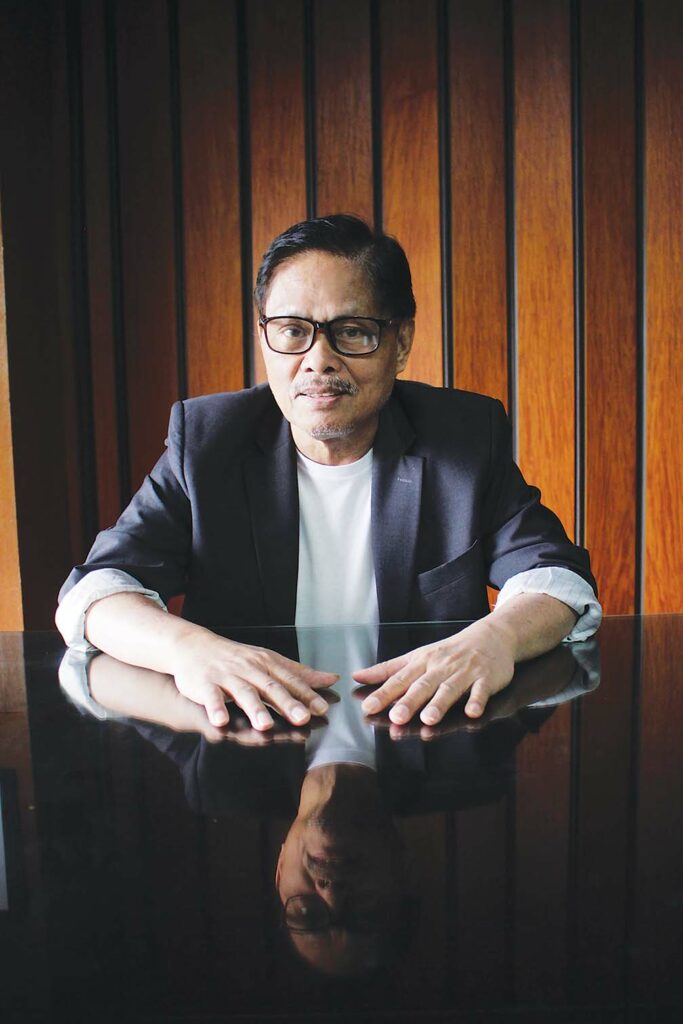
“After the Edsa Revolution, I joined the group of Raul Manglapus, the NUCD-UMDP (National Union of Christian Democrats-United Muslim Democrats of the Philippines) which eventually became Lakas-NUCD-UMDP when Fidel Ramos ran for President. This was the same party that Gloria Macapagal-Arroyo ran under as Vice President and eventually as President,” Mamondiong related during an exclusive Philippines Graphic interview.
It was during the term of Ramos that Mamondiong started to assume more significant roles in government. He became a director of the Philippine National Oil Company-Energy Development corporation (PNOC-EDC).
OIL EXPLORATION
According to Mamondiong, he was one of the board members who initiated a nationwide exploration for oil so that the Philippines would not be too dependent on foreign countries for their fuel requirements.
“That was my idea because I know for a fact that we do have oil deposits in our country and we really need to tap this,” he said.
He was then transferred to the then Department of Transportation and Communication (DOTC) where he served as Undersecretary for the Municipal Telephone Project.
“At that time, there were no cellphones so the government had to find a way to connect the barangays to the regional and national government. The idea then was to set up a barangay Telecenter which would provide internet services to the barangay,” he said.
Probably seeing that he was contributing a great deal at the DOTC, Mamondiong stayed on at DOTC but was appointed Undersecretary of Railways when Macapagal-Arroyo was elected President. He recalled the Railways Office was created simultaneously with the Mindanao Railway Office.
“The vision then was to create a national railway system. Those were some of the projects that I handled,” he said.
TESDA STINT
When Mamondiong supported the election of President Rodrigo Duterte, he was assigned as the Director General of the Technical Education and Skills Development Authority (TESDA). He was happy to report that he was able to extend skills training opportunities to many Filipinos and assist a number of training centers.
He left government in order to run for governor of Lanao del Sur in the 2019 elections but lost.
Recognizing his long experience in government, Duterte gave Mamondiong the biggest challenge in the latter’s career. The President tapped Mamondiong to head the Local Water Utilities Administration (LWUA) due to the untimely death of Jeci Lapus, the former administrator. Lapus, a former Tarlac representative, assumed the LWUA post in 2017 until he died of a heart attack in July 2021.
The LWUA was created through Presidential Decree No. 198, also known as the “Provincial Water Utilities Act of 1973,” which was signed into law on May 25, 1973.
LWUA is a Government-Owned and Controlled Corporation (GOCC) with a specialized lending function mandated by law to promote and oversee the development of water supply and sanitation systems in provincial cities and municipalities outside of Metro Manila.
MANDATE
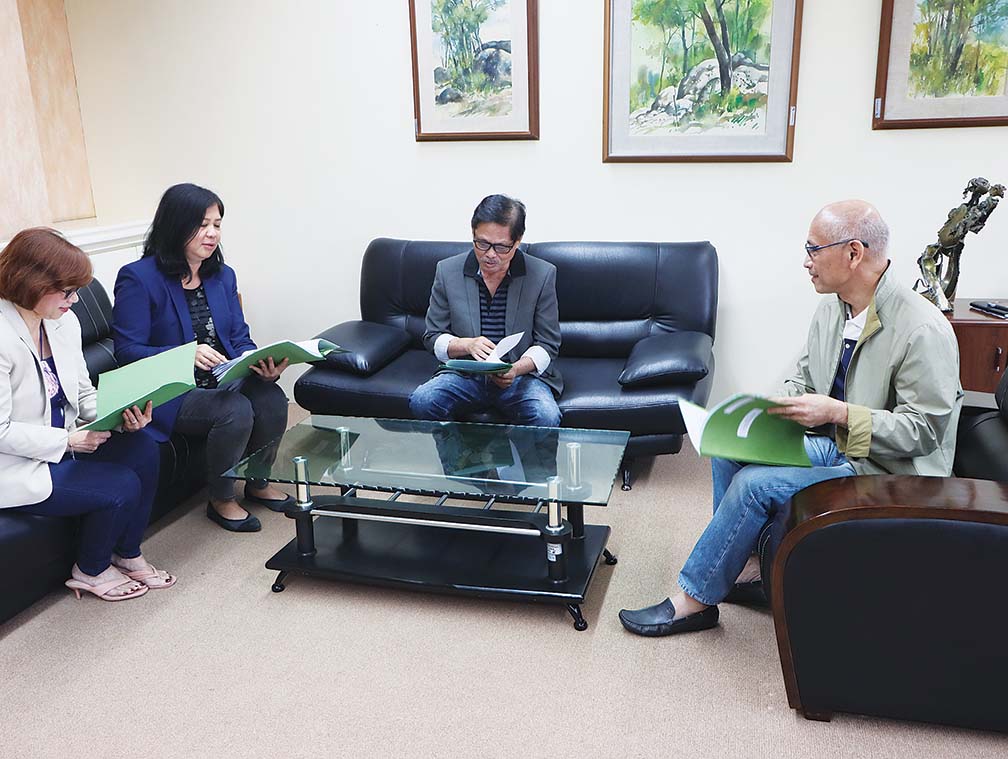
The Provincial Water Utilities Act of 1973 authorizes LWUA to service Local Water Districts (LWD) through financial, technical, institutional development and regulatory services. Its vision is to have adequate and sustainable safe water and sanitation services (with Government Guaranteed Funds) in the countryside by 2030 through self-reliant Local Water Districts.
“LWUA’s mandate is to provide safe, clean and affordable water and we can only do that if there are water districts in all local government units. Unfortunately, LWUA is turning 49 years old this year and it has only able to organize about 800 water districts. Out of the 800, only 532 are operational,” Mamondiong lamented.
He added that while there are a total of 42,000 barangays all over the country, many rural barangays were not included in the formation of water districts. This task, Mamondiong said, should be completed by 2030.
Since he started at LWUA, it has been one challenge after another. Another mandate of LWUA is to establish waste water disposal systems or what is called Sewage Treatment Plants (STP). While LWUA has been active in its attempt to increase the number of water districts, the same cannot be said about STPs.
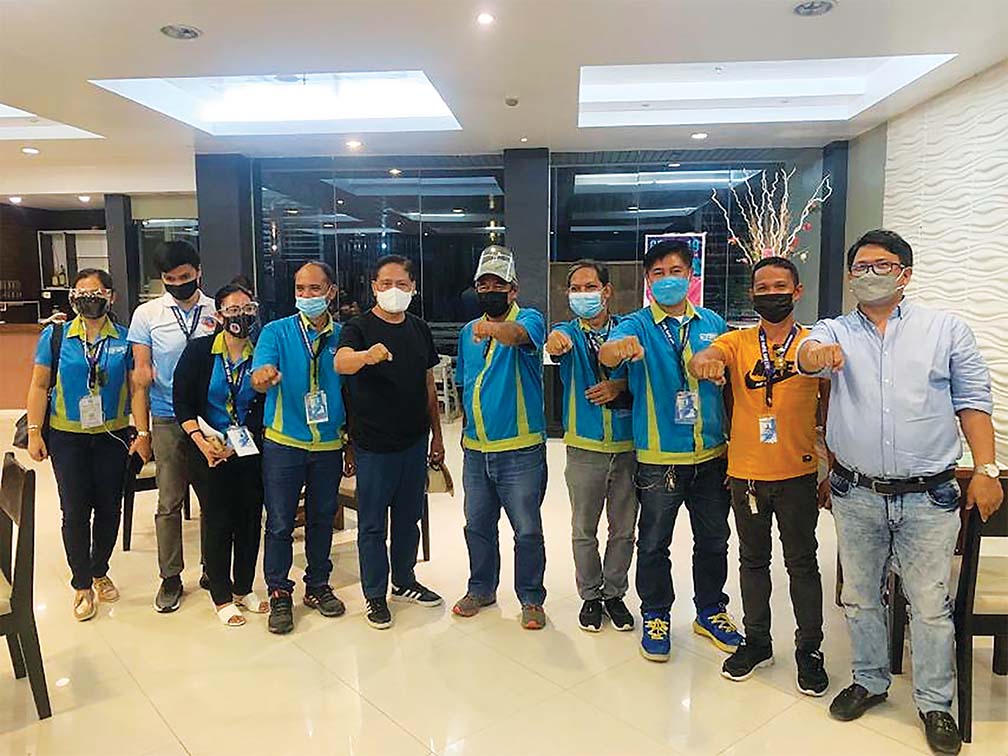
“LWUA has been focusing on creating water districts, not on sanitation. I kept on telling the team that LWUA should be creating water districts together with STPs,” he said, adding that the national government is not extending much help to the agency.
SERVICE AGENCY
Mamondiong pointed out LWUA should not be considered a GOCC because the agency offers a service to the Filipino people. He added that LWUA depends on the interest rates of the loans extended to water districts for the salaries of LWUA personnel.
“LWUA is in a very difficult situation and yet we have a very big mandate to fulfill. None of our employees receive any salary from the national government. We are dependent on the loans that we receive from institutions like the Asian Development Bank and other lending institutions. LWUA makes money through the interest of these loans and this is what we use to pay our salaries,” he explained.
PD 198 states that LWUA is a special lending institution. According to Mamondiong, this was the reason why Prospero Pichay, LWUA Chairman from September 2008 to 2011, oversaw the acquisition by LWUA of 445,377 shares or 60% of the shares of thrift bank Express Savings Bank Inc. for P80 million. LWUA also deposited P300 million and made an advance payment of P400 million to subscribe to the increase in ESBI’s authorized capital stock.
However, some LWUA employees questioned the transaction, accusing Pichay and his fellow LWUA officers of violating the General Appropriations Act for Fiscal year 2009 which prohibited government funds from being invested in private banking institutions like ESBI.
Pichay was also accused of not securing prior approval from the Monetary Board of the Bangko Sentral ng Pilipinas (BSP) before acquiring more than 20% ownership of a bank, Mamondiong said.
The employees also argued that ESBI was under BSP rehabilitation and P480 million of LWUA’s investment was not protected by government securities nor by certificate of stocks by ESBI.
ASSET RETRIEVAL
The Ombudsman found Pichay and fellow LWUA officers guilty of grave misconduct and ordered their perpetual disqualification from service. The Court of Appeals, as well as the Supreme Court, sided with the Ombudsman’s ruling.
“The bank was eventually foreclosed but LWUA still has money in that institution. We are trying to see if LWUA can still recover its investments in the bank. There really was no need for LWUA to acquire a bank. It could have just borrowed money from the Landbank, Development Bank of the Philippines and other private banks,” he said.
Elaborated Mamondiong: “LWUA is supposed to be extending technical, administrative and financial assistance but we cannot achieve that. We cannot fulfill our obligation to the people if we do not have the support of the national government.”
LWUA is currently negotiating with financial lending institutions in order to fund water development and expansion projects in the countryside.
“The goal is to get funding other than what the national government can provide, which is not enough to decongest the huge backlog of water projects in the provinces,” Mamondiong said.
He further said that the agency has been soliciting funds from both private and public organizations, local and foreign. “We are appealing to other like-minded groups and individuals to join us in assisting water-deprived areas across the country. We are open for more needed funds from other sources who are willing to lend a hand in nation building.”
NEW FUNDING
Aside from water expansion projects, Mamondiong said LWUA has also been looking for new funding to finance sanitation development to go hand in hand with water development.
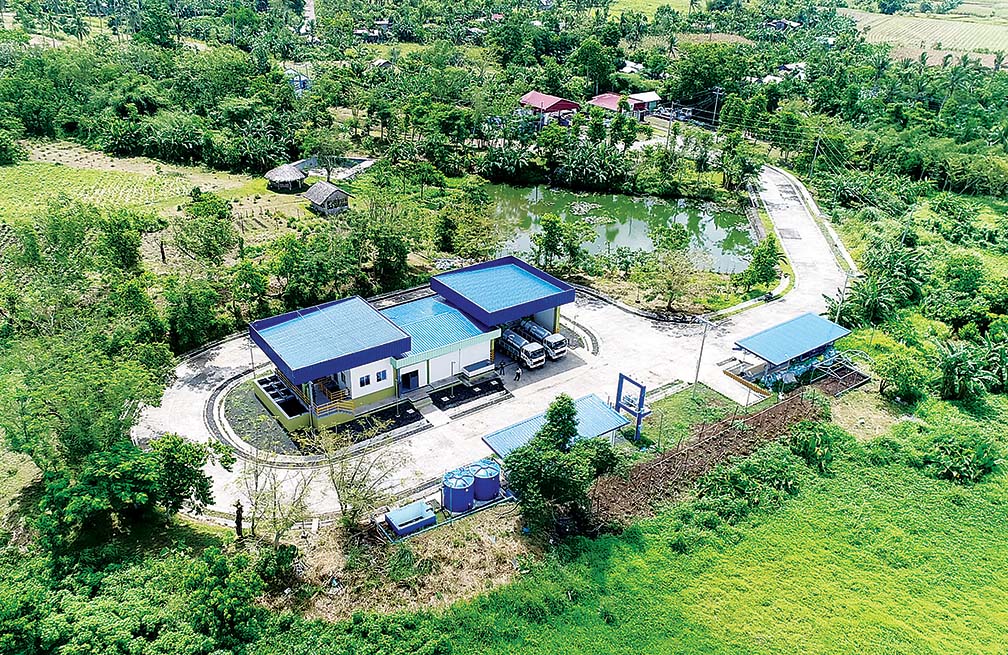
“Water may be crucial to life, but so is sanitation which is vital to good health,” Mamondiong explained, adding that water-borne diseases like diarrhea and typhoid fever pose a threat especially to children.
He added that as mandated by the Supreme Court’s 2008 mandamus, water districts surrounding Manila Bay will ramp up clean-up efforts with the assistance of local government units.
Mamondiong said the funding infusion would be used for all water districts in need with LWUA providing the technical and managerial assistance to oversee their successful operation.
“Our goal is to double or even triple the number of water districts and beneficiaries in line with President Rodrigo Duterte’s marching orders to provide clean and safe water to every Filipino,” he said.
MARCHING ORDERS
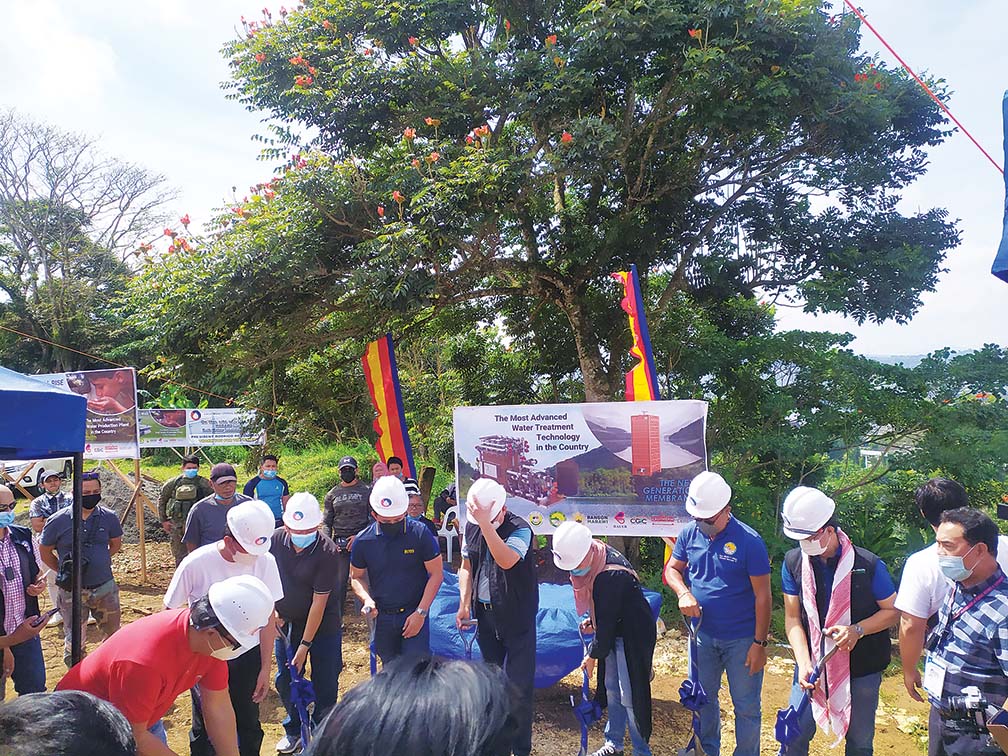
When he assumed the LWUA top post, Mamondiong’s other marching orders from Duterte were to look into the water district projects in Marawi, Zambaonga City, the Super Typhoon Yolanda-hit areas, and the areas hit by Typhoon Odette.
“Look at the Marawi project. I told the people here at LWUA that it’s been five years and yet the project has not been awarded and has not started. Why? That’s why I told them that we in LWUA are corrupt. Corruption is not just stealing money. When a project is unreasonably delayed, that is another form of corruption,” he said.
LWUA also learned a great deal from what happened after Typhoon Odette hit the country last December 2021. Aside from ensuring water supply and sanitation in the countryside, LWUA is now crafting programs to quickly come to the aid of calamity victims, as well as to prepare and protect them when such a situation arises.
“We are finding ways to purchase mobile equipment plants and water bladders which can immediately provide drinking water once pipelines are damaged or destroyed,” he said, stressing the need to source the funds needed for the equipment.
“We have to learn from the lessons of Odette and must prepare for future disasters to prevent casualties and suffering,” he added.
SANITATION PROJECTS
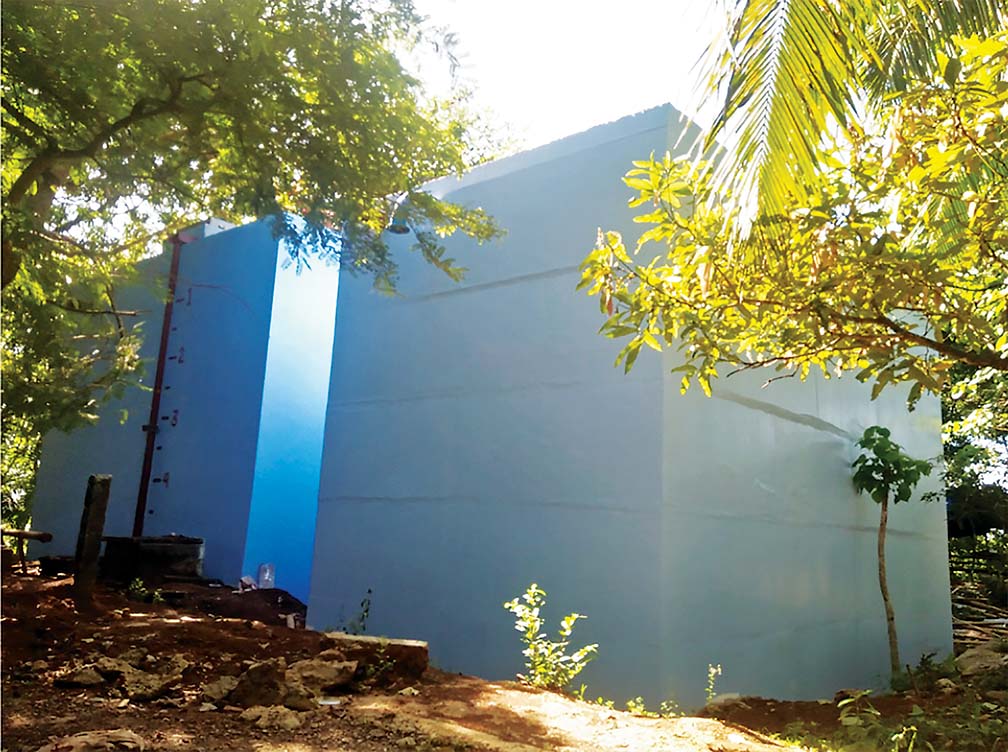
Other projects that have been delayed include the sanitation projects in Bulacan, Bataan, Cavite and Laguna. None of them, according to Mamondiong, have progressed so far.
“We are always saying that we are undermanned. Out of the 800 personnel approved for LWUA, it was reduced to 400 because of rationalization. However, out of the 400 positions, only about 200 positions have been filled. Our efficiency is affected because of this but LWUA should have reached out and asked for help,” he lamented.
In addition to being undermanned, Mamondiong said another excuse that was given for the delay in the implementation of these projects is the COVID-19 pandemic. According to Eileen L. Dela Vega, LWUA Acting Deputy Administrator for Institutional Development Service, like all government agencies, LWUA was also affected by the pandemic.
“We implemented a hybrid work arrangement where some had to work from home and some had to come here at LWUA because we cannot bring home all the information that we need,” she related.
Dela Vega added that there was even a time when the agency had to go on lockdown for a week because of the cases brought about by the COVID-19 Delta variant.
“We were greatly affected by the Delta variant because we were sending employees to the hospital every two days. One of our employees even died of the ailment,” she said.
COORDINATION DIFFICULTY
Dela Vega said they initially experienced difficulty coordinating with the over 500 water districts over the country. Thanks to the Internet, Viber and Zoom, LWUA was able to keep in touch with the water districts.
“We learned to cope although it was very challenging. We came up with a system so that we would be able to reach out to the water districts who had insufficient internet service,” she said.
LWUA was in the news lately when it was announced that it would be taking control of almost 100 water districts whose performances and services have been poor over the past few years.
Mamondiong explained that LWUA’s take over is only temporary. Personnel will be sent there to see how they would be able to solve their problem, and this is usually due to an inefficient management. Once those issues have been resolved, LWUA will pull out and allow the water districts to operate on their own.
“What is important to us is that the water district can continue to deliver its promise of clean water and that they are able to pay their loans. If they cannot pay their loans, then our operations will be affected,” Mamondiong said.
MORE WATER DISTRICTS
Since he is co-terminus with Duterte, Mamondiong hopes to create more water districts with the help of the Department of Interior and Local Government (DILG). He also hopes to start the rural barangay system and then do water quality testing.
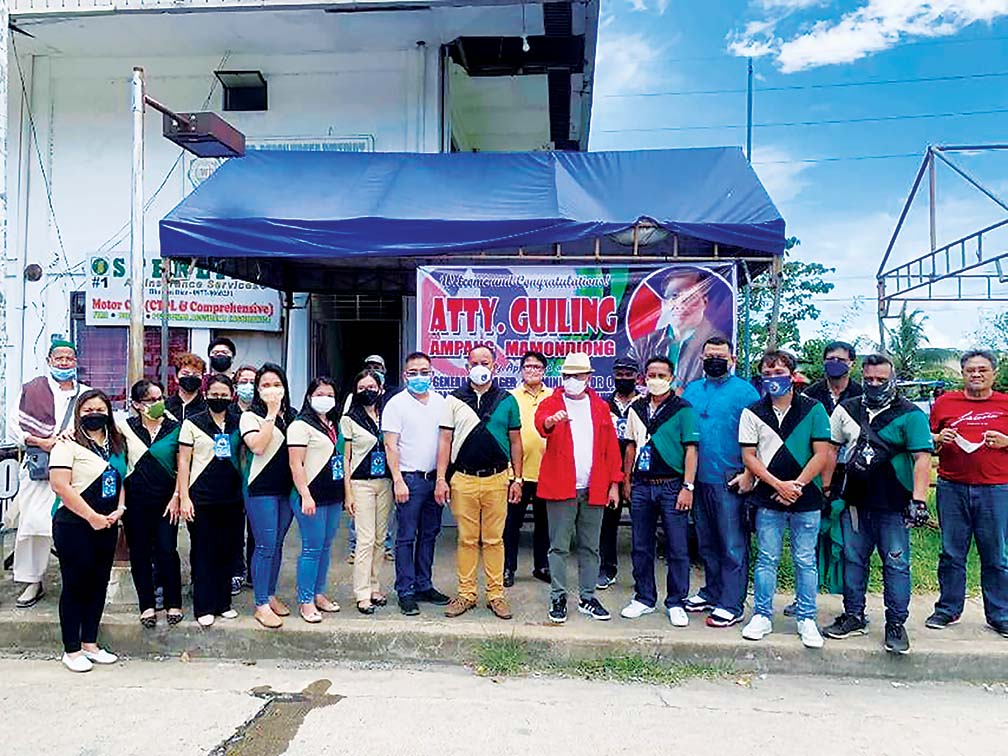
“I have asked for a P15 billion revolving fund for loan assistance. We are also currently talking with the DBP to make P40 million available for the development of water districts. I hope we can send a memo soon to the DBP for this assistance because we need to achieve 1,500 water districts by 2030,” he said.
There are also plans to acquire mobile water treatment facilities which should be strategically located all over the country so that they can respond to areas in need. These should be placed in Davao, Cagayan de Oro, Tacloban, Lucena, La Union and in Metro Manila.
If he had his way, Mamondiong said, he would also push for the donation of the land on which the LWUA building stand to the agency. This would save them P20 million a year in rental fees and would help improve their efficiency.
“Water is life and we need the national government’s support so that we will be able to achieve our mandate efficiently,” he said.


